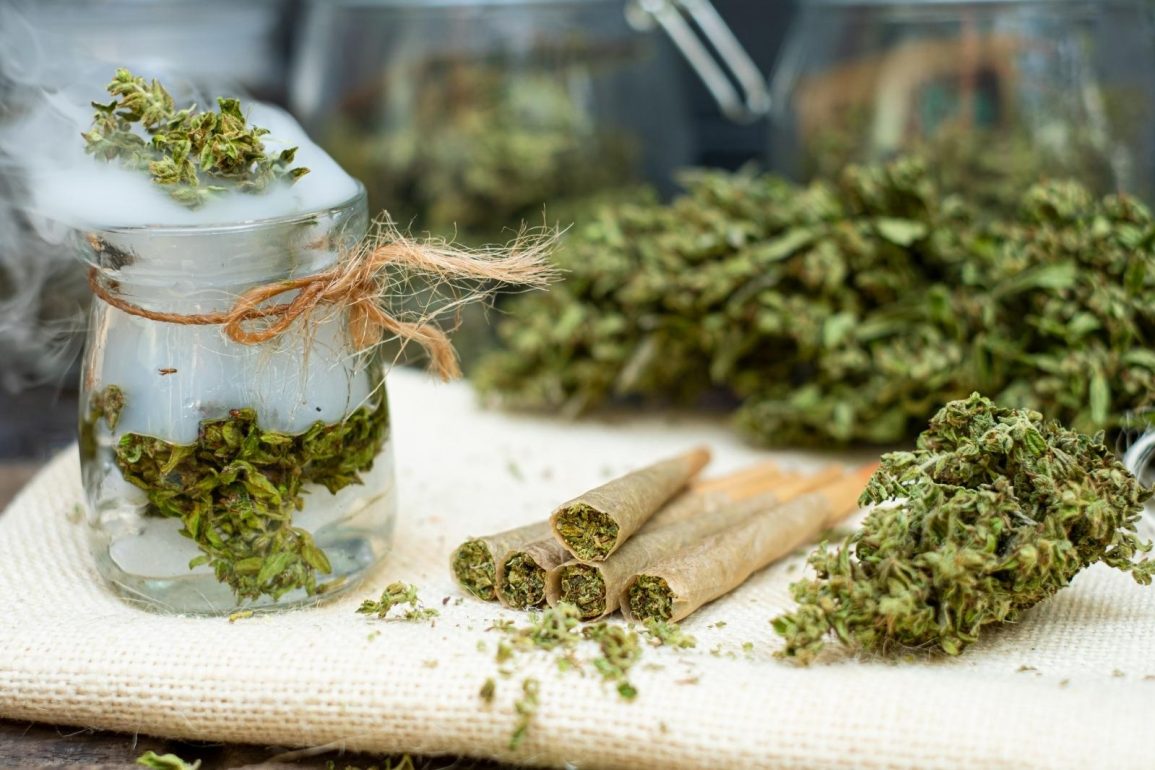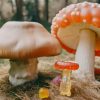In the world of cannabis, THCA flower is gaining recognition for its potential therapeutic benefits and unique properties. But how exactly is THCA flower made, and what sets it apart from other cannabis products? In this blog, we’ll explore the How is THCA Flower Made:
Table of Content:
- What is THCA Flower?
- How is THCA Flower Made?
- Is it Similar to the Way HHC Flowers are Made?
- How Strong is the THCA Flower?
- Is it Possible to Grow THCA Flowers?
- How Do You Determine the THCA Percentage of Hemp Flowers?
- Is It Possible to Make THCA Diamonds from THCA Flowers?
- Is THCA Flower Legal?
- Is THCA Flower Safe?
What is THCA Flower?
THCA, or tetrahydrocannabinolic acid, is a naturally occurring cannabinoid found in raw cannabis plants. Unlike its well-known counterpart THC (delta-9-tetrahydrocannabinol), THCA is non-psychoactive in its natural form. THCA flower is made by preserving this non-psychoactive cannabinoid in its raw state.
How is THCA Flower Made?
The process of creating a THCA flower involves specific steps to preserve THCA in its natural, non-psychoactive form:
- Harvesting: THCA flower production begins with the careful selection and harvesting of cannabis plants. It’s essential to choose strains with high THCA content.
- Drying and Curing: After harvest, the cannabis plants are dried and cured to remove excess moisture and allow the cannabinoids to develop fully. This step is crucial in preserving THCA and preventing it from decarboxylating into psychoactive THC.
- Decarboxylation Prevention: Unlike traditional cannabis flowers, THCA flower is intentionally processed to prevent decarboxylation. Decarboxylation is the process by which THCA is converted into THC through heat and time. To avoid this, THCA flower is handled carefully to maintain a raw, non-psychoactive state.
- Packaging: Once the cannabis has been processed and preserved as THCA flower, it is packaged and made available for consumption.
Is it Similar to the Way HHC Flowers are Made?
THCA flower and HHC (hexahydrocannabinol) flower are distinct products. While both are created by preserving specific cannabinoids in their raw state, they differ in the cannabinoids they focus on. THCA flower preserves THCA, a non-psychoactive cannabinoid, whereas HHC flower aims to maintain HHC, which is believed to have different effects than THC. The processes for creating these flowers may share similarities in terms of preservation, but the end products cater to different cannabinoid profiles.
How Strong is the THCA Flower?
THCA flower is not typically measured for strength in the same way THC-dominant cannabis strains are. Instead, its potency is gauged by its THCA content, which can vary from strain to strain. THCA itself does not produce psychoactive effects, so the “strength” of THCA flower is more about its potential therapeutic benefits than its potency for recreational use.
Is it Possible to Grow THCA Flowers?
Yes, it is possible to grow THCA flowers, but it requires specific strains with a high THCA content and a meticulous cultivation process to preserve the cannabinoid in its raw form. Here are some key considerations for growing THCA-rich cannabis:
- Strain Selection: Choose cannabis strains known for their high THCA content. Some strains naturally produce more THCA than others.
- Harvest Timing: Harvest the plants at the right time to ensure that the THCA content is at its peak. Timing is critical to preserving THCA before it begins to decarboxylate.
- Drying and Curing: Pay close attention to the drying and curing process to prevent decarboxylation. Keeping the cannabis in a raw state is essential.
- THCA Preservation: Throughout the cultivation process, focus on preserving THCA by avoiding excessive heat or light exposure.
How Do You Determine the THCA Percentage of Hemp Flowers?
Determining the THCA percentage of hemp flowers involves laboratory testing and analysis. Here’s how the process generally works:
- Sample Collection: A representative sample of the hemp flowers is collected for testing. This sample should accurately represent the entire batch.
- Extraction: The cannabinoids are extracted from the sample using a solvent, typically alcohol or CO2.
- Analysis: The extracted solution is then analyzed using high-performance liquid chromatography (HPLC) or similar techniques to quantify the THCA content.
- Reporting: The results of the analysis are reported as a percentage of THCA in the hemp flowers. This percentage provides valuable information about the potency of the product.
It’s important to note that THCA is the acidic precursor to THC, and its percentage does not directly indicate the psychoactive potential of the hemp flowers. THCA is non-psychoactive until it undergoes decarboxylation, a process that converts it into THC.
Is It Possible to Make THCA Diamonds from THCA Flowers?
Yes, it is possible to create THCA diamonds from THCA flowers. THCA diamonds, also known as crystalline THCA, are a highly purified form of THCA that crystallizes under specific conditions. The process typically involves dissolving THCA-rich extract in a solvent and allowing it to slowly crystallize over time. The result is a product with a very high concentration of THCA.
Creating THCA diamonds requires specialized equipment and expertise, making it a process typically reserved for commercial cannabis processors and extractors. It’s not a common DIY endeavor due to the complexity of the process.
Is THCA Flower Legal?
The legality of THCA flower varies depending on the jurisdiction and the specific regulations in place. In some regions, THCA flower is considered legal as long as it contains negligible levels of THC, typically below 0.3% THC by dry weight. However, it’s essential to check local and national laws regarding cannabis and hemp products in your area, as regulations can differ significantly.
In regions where cannabis and hemp are legal for recreational or medicinal use, THCA flower may be available through licensed dispensaries and retailers. Always purchase from reputable sources to ensure the product’s legality and safety.
Is THCA Flower Safe?
THCA flower is generally considered safe when used responsibly and in accordance with legal regulations. However, it’s essential to keep the following considerations in mind:
- Quality Control: Ensure that you purchase THCA flower from reputable sources that conduct thorough quality control and testing to verify its cannabinoid content and purity.
- Dosage: Use THCA flower responsibly and in moderation. Understand that THCA is non-psychoactive in its raw form, but it can convert into psychoactive THC when exposed to heat or prolonged storage.
- Potential Benefits: THCA is being explored for its potential therapeutic benefits, such as anti-inflammatory and neuroprotective properties. If you are considering THCA flower for medicinal use, consult with a healthcare professional to determine its suitability for your specific needs.
- Legality: Be aware of the legal status of THCA flowers in your area and adhere to local regulations.
In conclusion, THCA flower is an intriguing product in the cannabis world, known for its potential therapeutic properties and unique characteristics. Determining its THCA percentage involves laboratory testing, and it is possible to create THCA diamonds from THCA-rich extracts. The legal status of THCA flowers varies by location, so it’s essential to stay informed about local regulations. When used responsibly and obtained from reputable sources, THCA flowers can be considered safe for consumption.
Disclaimer – The contents of this article are provided solely for informational purposes and should not be considered medical advice. It is important to note that the information presented here is not meant to diagnose, treat, cure, or prevent any disease. Prior to embarking on any new health-related regimen, Always consult your healthcare provider before trying new supplements or treatments. Keeping you safe and well is our top priority. Additionally, it’s important to note that the FDA has not endorsed any claims regarding the health benefits of cannabis. Delta8Hub makes no guarantees or warranties regarding the accuracy, completeness, or usefulness of any messages contained here in.

